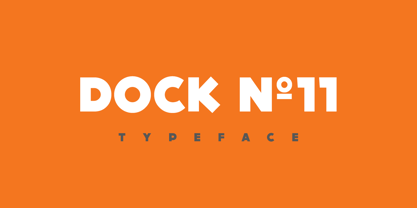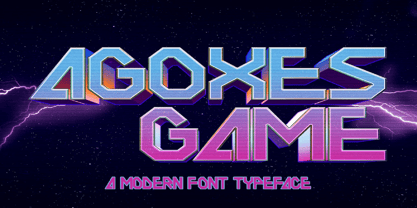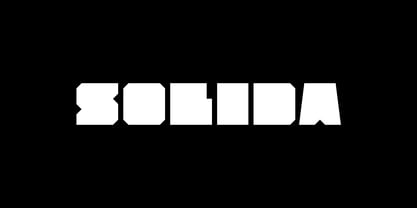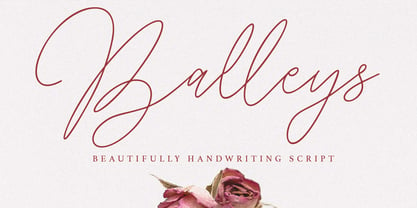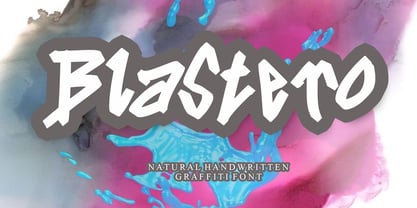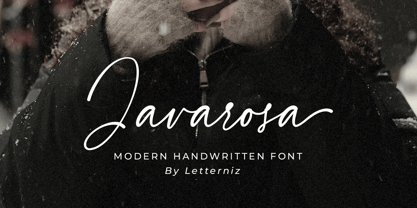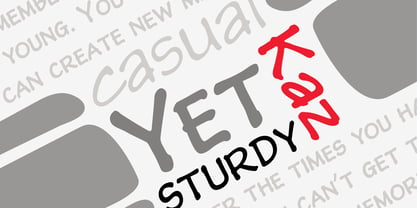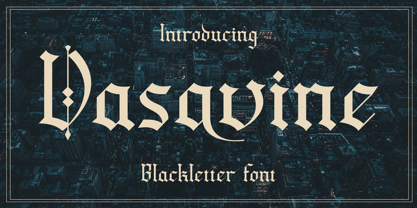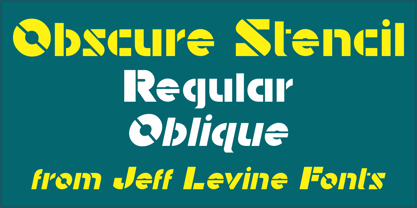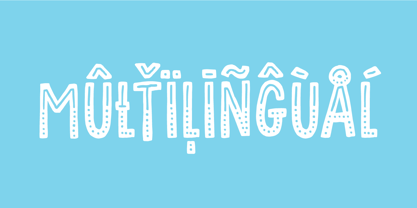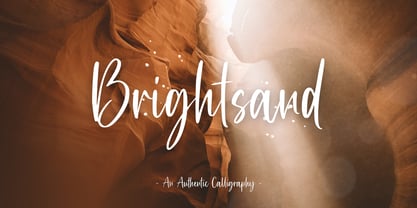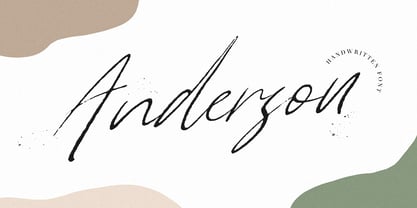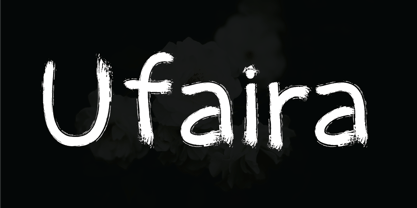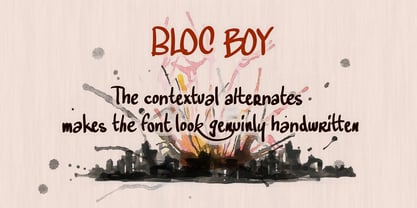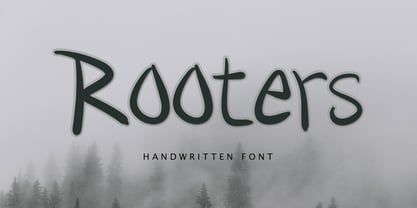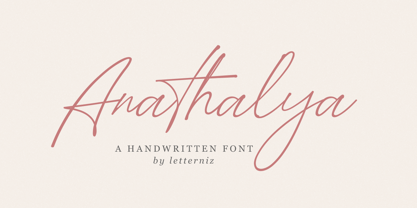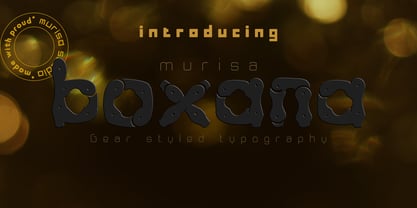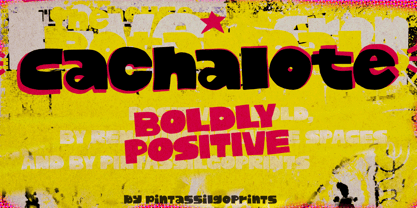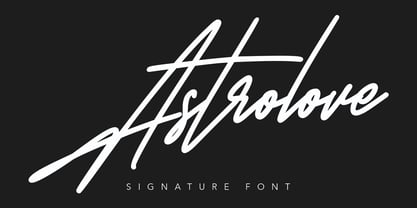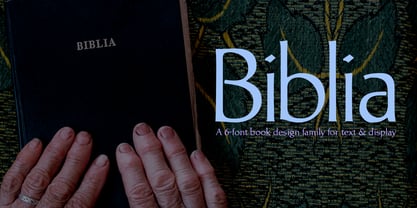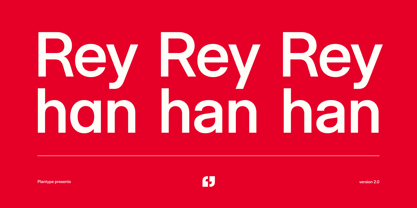10,000 search results
(0.02 seconds)
- DOCK11 by artill,
$22.00 - Metal rocker by Letterafandi Studio,
$14.00 - Agoxes Game by Sealoung,
$10.00 - Noodle by Letterhead Studio-VV,
$15.99 - Solida by Graviton,
$4.00 - Balleys by Maulana Creative,
$14.00 - Flows by Okaycat,
$29.50 - Classy Diner by Haiku Monkey,
$10.00Handwritten with care, and made bold and consistent with an art deco flair. If I owned a classy diner, this is how I'd like my chalkboard menus to look. - Sense by Shinntype,
$29.00 - Blastero by Letterafandi Studio,
$14.00 - Javarosa by Letterniz,
$25.00 - P22 Kaz by IHOF,
$24.95 - Abracadabra by Volcano Type,
$19.00Abracadabra is a headline font and shows its characteristics best in big sizes. Abracadabra loves to be used for fashionable reasons and likes to play with religious-looking symbols. - Plumbsky by PizzaDude.dk,
$20.00Plumbsky comes to the rescue when something that looks handmade and goofy is needed. In all it's funkiness it stays somewhat true to the classic moves of a typeface. - Detention JNL by Jeff Levine,
$29.00Detention JNL is simply the hand printing of its designer, Jeff Levine. Its uses range from personalizing notes and messages to a graffiti look or as "legible grunge lettering". - FG Muriel by YOFF,
$14.95FG Muriel is an all-caps font with different letters for caps and lowercase which can be combined to make it look like true handwriting. I love this font! - Torches Realistic Brush Font by Maulana Creative,
$13.00 - Vasavine by Rvandtype,
$9.00 - Obscure Stencil JNL by Jeff Levine,
$29.00 - Play It Cool by PizzaDude.dk,
$17.00 - Brightsand by Sibelumpagi,
$18.00 - KG By The Grace Of God by Kimberly Geswein,
$5.00 - Anderson by Larin Type Co,
$12.00 - Ufaira by Edcreative,
$15.00 - Bloc Boy by Mans Greback,
$59.00 - Rooters by Letterafandi Studio,
$14.00 - Anathalya by Letterniz,
$27.00 - Paula by Autographis,
$39.50 - Banana Milk by wearecolt,
$19.00 - Murisa Boxana by Murisa Studio,
$10.00 - Modernist by Fly Fonts,
$15.00Modernist is a square font with very clean lines that is currently available in 4 weights. Works well in a number of sizes to create a stylish, modern look. - P22 Atomica by P22 Type Foundry,
$24.95 - Bestro by Maulana Creative,
$17.00 - Sillyheads by PizzaDude.dk,
$10.00 - Rackham by Scriptorium,
$18.00Rackham Italic is based on the hand lettered titles of Arthur Rackham from the book English Fairytales. The Rackham font is based on his more familiar title lettering style. - Cachalote by PintassilgoPrints,
$19.00 - Astrolove by Maulana Creative,
$15.00 - Biblia by Hackberry Font Foundry,
$24.95This all started with a love for Minister. This is a font designed by Carl Albert Fahrenwaldt in 1929. In the specimen booklet there’s a scan from Linotype’s page many years ago. They no longer carry the font. I’ve gone quite a ways from the original. It was dark and a bit heavy. But I loved the look and the readability. This came to a head when I started my first book on all-digital printing written from 1994-1995, and published early in 1996. I needed fonts to show the typography I was talking about. At that point oldstyle figures, true small caps, and discretionary ligatures were rare. More than that text fonts for book design had lining OR oldstyle figures, lowercase OR small caps—never both. So, I designed the Diaconia family (using the Greek word for minister). It was fairly rough. I knew very little. I later redesigned and updated Diaconia into Bergsland Pro —released in 2004. It was still rough (though I impressed myself). In 2006, I found myself needing a readable sans serif. So I went to Bergsland Pro, and eliminated the serifs. I named the font Brinar. I kept a flare in place for the serifs and cupped the ends. I was stunned. People loved it. It’s remained my bestseller until very recently. So, at the end of 2016 I decided that Brinar really needed some help. The flares were basically random. The stem width and modulation variances all needed to be fixed. My old OpenType feature code was quite limited and clumsy. So, I created the 6-font Biblia family. I cleaned up or redesigned all the glyphs. I updated the fonts to the 2017 set of features: small caps, small cap figures, oldstyle figures, fractions, lining figures, ligatures and discretionary ligatures. These are fonts designed for book production and work well for text or heads. - Vtc-NueTattooScript - Personal use only
- Reyhan by Plantype,
$30.00Reyhan is a low contrast typeface that looks legible and clean in small sizes. On large sizes, it wraps the space around. Finely drawn negative spaces, neat and minimal shapes define Reyhan. Simple and clean lines give the typeface a solid and finished look. Reyhan is pure and powerful with well designed proportions. Different alternatives such as square dots, alternate /a /l /y /R /1 /6 /9, coverage of 94 Latin languages, various Opentype features, and 18 styles expand the usage area of Reyhan, making it a versatile workhorse. With high-quality spacing, Reyhan looks good on all sizes, making it not only a valuable tool for graphic designers but also a total typeface solution for every person who communicates with type. Reyhan is a typeface designed to adapt requirements of modern and traditional communication. For more information please visit www.plantype.co
